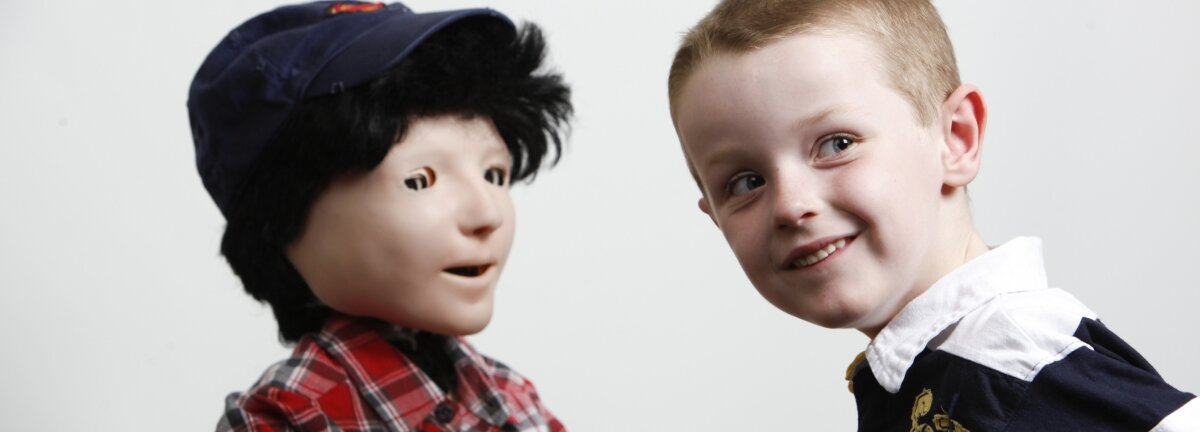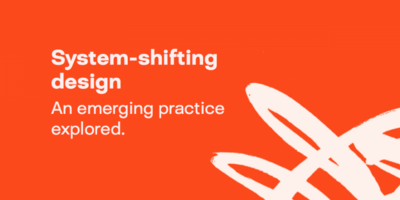University of Hertfordshire

Children with autism have difficulties understanding the emotions and reactions of others and often do not engage socially, which has a significant effect on them and their families’ wellbeing.
Kaspar is the name given to a robot developed over several years at the University of Hertfordshire’s Adaptive Systems Research Group (ASRG) as a therapy tool for children with autism to teach them about communication and interaction with people – with the robot serving as a mediator. The Kaspar project began in 2005.
Challenges
Kaspar was to be used by children in several challenging settings: in schools and families as well as potentially in social services with vulnerable individuals.
Additionally, given the technical specialism required for the robot itself, lack of expertise in service design was a significant problem.
What we did
We assigned our Design Associate Markus Hohl to work with the Kaspar team in 2013. He highlighted the necessity for this product to be accompanied by a service package, which would need to address what teachers or parents could expect from the product and the supplier, how to train teachers and parents in the use of Kaspar, how they could find additional information, and how to collect feedback.
I knew nothing about these issues but I could see it is important. I found the whole process interesting; it made us think about things we normally wouldn’t.
Kerstin Dautenhahn, Lead researcher
Markus Hohl connected the team to Telford Consulting Ltd, a local design specialist with appropriate expertise, who took the service design forward. Kerstin Dautenhahn, Lead researcher, says: “I knew nothing about these issues but I could see it is important. I found the whole process interesting; it made us think about things we normally wouldn’t. We were all very pleased with how the workshops were organised and the outcomes are now very useful for us in order to progress this project further.”
The results
Case study evaluations with 60 children had given encouraging results, and as part of the Kaspar project a clinical study was due to commence towards the end of 2013.
The University of Hertfordshire financed the additional design support from Telford Consulting, constituting around five workshops with the team to develop the service package around Kaspar.
This resulted in a customer-focused website and an itemised register of service aspects to accompany the product.
Development and field-trials of Kaspar continue.
We now have a service model, as an itemised list, and a diagram where all steps of the customer journey are detailed.
Kerstin Dautenhahn, Lead researcher
Subscribe to our newsletter
Want to keep up with the latest from the Design Council?

